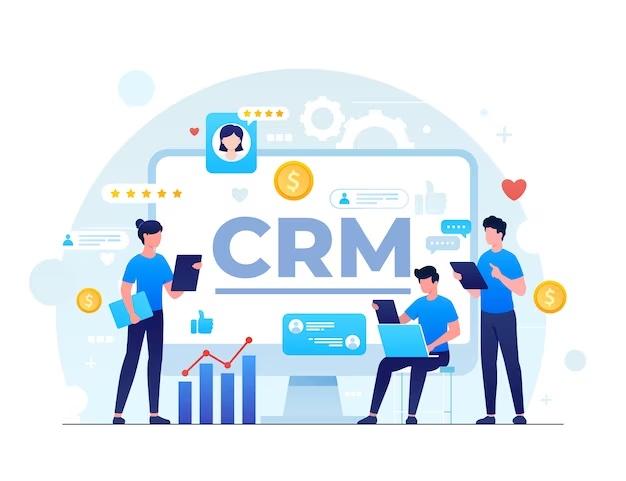Comprehensive set of integrated business solutions
Designed to improve and simplify various business processes within an organization

Invoicing Management
Invoicing management features offer an efficient and user-friendly solution for businesses to manage their invoicing processes. With customizable templates, businesses can create professional invoices tailored to their branding, ensuring a polished and consistent appearance. The system simplifies the invoicing workflow through automation, allowing for the creation of recurring invoices for subscription-based services or regular billing, reducing manual data entry and administrative tasks.
One standout feature is its flexibility in handling tax complexities, including international tax compliance, ensuring accurate tax calculations on invoices. It also supports multi-currency transactions, simplifying global business operations. The solution integrates seamlessly with various payment methods, allowing customers to make payments directly from invoices. Additionally, it offers an intuitive dashboard for tracking invoice statuses in real-time, automating follow-up processes for overdue payments, and providing a customer portal for clients to access and download their invoices.

Finance Management
Finance management features provide an integrated solution to simplify financial operations for businesses. At its core, it offers strong accounting capabilities, allowing businesses to maintain accurate and up-to-date financial records. With support for multi-currency transactions, it facilitates global business activities, making it ideal for companies with international operations.
One of its standout features is its seamless integration with other modules, such as invoicing, inventory management, and sales, ensuring that financial data is synchronized across the organization. This integration enhances efficiency by reducing the need for manual data entry and minimizing errors. Additionally, it offers advanced reporting and analytics tools, empowering businesses to gain insights into their financial performance, track key metrics, and make informed decisions. With features like budget management, cost tracking, and bank reconciliation, finance management capabilities help businesses of all sizes optimize their financial processes, maintain compliance, and drive financial success.

Sales Management
Sales management features provide businesses with an efficient solution to simplify their sales processes. At its core, it offers a user-friendly interface for managing leads, opportunities, and customer relationships. Users can easily track leads from initial contact to conversion, helping sales teams prioritize their efforts and close deals more effectively. Integration with other areas, such as inventory and invoicing, ensures that sales data flows seamlessly throughout the organization, reducing data entry errors and improving overall efficiency.
One of the key strengths of sales management is its customizable workflows and automation capabilities. Businesses can configure the system to match their specific sales processes, automating repetitive tasks and notifications. Additionally, it supports sales forecasting and reporting, allowing organizations to gain valuable insights into their sales performance and make data-driven decisions. With features like quotation management, order processing, and customer communication tracking, sales management helps businesses optimize their sales efforts, enhance customer relationships, and drive revenue growth.

Customer Relationship Management
Customer relationship management (CRM) features provide a powerful toolset for businesses to manage and nurture their customer relationships effectively. Central to the CRM is its ability to consolidate all customer-related information in one place, enabling users to access a complete view of their interactions with customers. This includes communication history, sales opportunities, support tickets, and more. Such insights empower sales, marketing, and support teams to personalize their interactions and provide a superior customer experience.
CRM offers a range of automation features, including lead scoring, email marketing integration, and task automation, which help businesses streamline their processes and prioritize their efforts efficiently. Furthermore, CRM integrates with other areas, such as sales, inventory, and invoicing, ensuring that all departments have access to accurate and up-to-date customer data. With reporting and analytics tools, businesses can track the effectiveness of their customer engagement strategies, identify opportunities for improvement, and ultimately strengthen customer loyalty and retention. In essence, CRM helps businesses optimize their customer interactions, increase sales efficiency, and foster long-lasting, profitable relationships with their clients

Product Management
Product management features provide a flexible solution for businesses to efficiently handle their product catalog and inventory. At its core, it allows users to create and manage detailed product listings, complete with descriptions, pricing, and variants. This product database serves as the foundation for various business processes, including sales, procurement, and manufacturing.
One of the key strengths of product management is its support for multi-location inventory management. Businesses can accurately track stock levels across multiple locations, optimize stock replenishment, and ensure efficient order fulfillment. It also facilitates real-time synchronization with other areas, such as sales and invoicing, ensuring that product data is consistently updated throughout the organization. With features like automated reordering, barcode scanning, and batch management, product management helps businesses streamline their inventory operations, reduce carrying costs, and enhance overall supply chain efficiency. This results in improved customer satisfaction and better financial control over their product-related operations.

Human Resource Management
Human resource management (HRM) features offer an integrated solution to streamline HR processes within organizations. At its core, HRM allows businesses to manage employee data, including personal information, employment history, and performance records, all in one centralized platform. This centralized database simplifies HR tasks such as recruitment, employee onboarding, and compliance management, ensuring that businesses can efficiently manage their workforce.
One of the standout features of HRM is its flexibility and customization options. Users can tailor it to meet their specific HR needs, including creating custom job positions, defining organizational hierarchies, and configuring leave and attendance policies. Moreover, it integrates seamlessly with other areas like payroll, time tracking, and employee evaluation, ensuring that HR data flows effortlessly across the organization. With reporting and analytics tools, businesses can gain insights into employee performance, attendance trends, and other HR metrics, allowing them to make data-driven decisions to improve workforce management, boost productivity, and enhance overall HR efficiency. In summary, HRM features empower businesses to optimize their HR processes, foster employee engagement, and drive organizational success through effective human resource management.